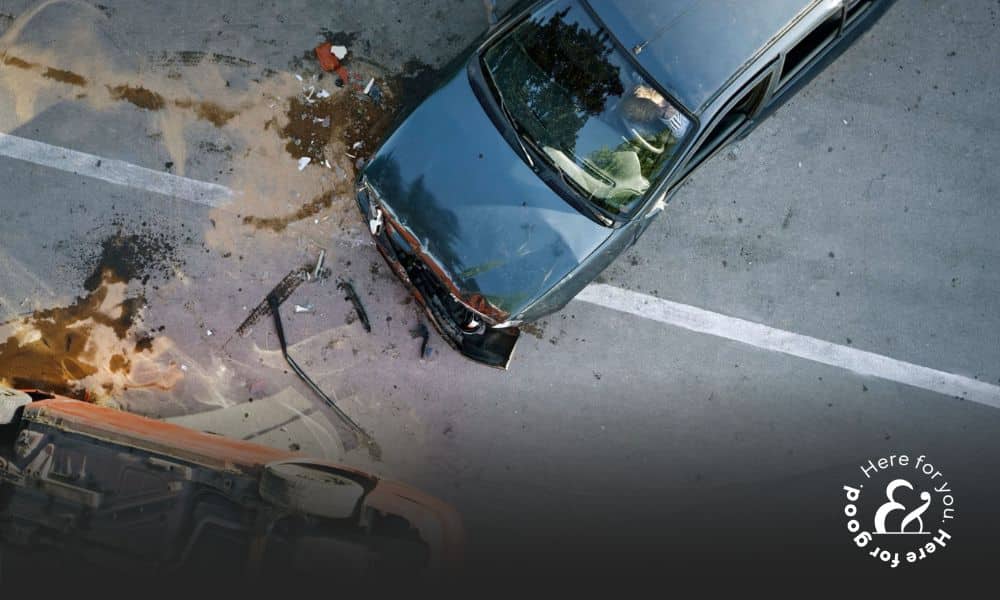Table of Contents
What Is the New Florida Comparative Negligence Law?
What Is the Impact of 2023 Tort Reform on Comparative Negligence in Florida?
How Did Florida’s Previous Comparative Negligence Rule Work?
Do All States Use a Comparative Negligence Rule?
Can I Still File a Negligence Lawsuit in Florida if I Share Some Fault for the Accident?
How Does the Change to Comparative Negligence Affect Medical Malpractice Cases in Florida?
Contact Our Florida Personal Injury Lawyers To Discuss Your Case Today
Florida’s comparative negligence law allows accident victims to recover compensation even if they share some fault or responsibility for their injuries. However, recent changes to the law may impact your ability to recover if you share fault for your accident.
These changes significantly impact tort law in the state, including who is allowed to legally claim compensation after an accident and how much they can recover in damages. With the exception of medical malpractice claims, victims found to be more than 50 percent at fault for their injuries are prohibited from recovering compensation.
If you’re hurt in an accident in Florida, the newly modified comparative negligence rule could affect your ability to receive a financial award for damages. To help you understand your rights, our Florida personal injury lawyers at Farah & Farah explain the details of comparative negligence and how the law has changed.
What Is the New Florida Comparative Negligence Law?
With the signing of House Bill 837 into law in March 2023, Florida now uses a modified comparative negligence rule rather than a pure comparative negligence system. Under modified comparative negligence, people who suffer injuries due to negligence can only recover damages if they are found to be 50 percent or less responsible for their injuries. If somebody was hurt in the accident and is more than 50 percent at fault, the new law bars them from recovering any damages. Medical malpractice cases in Florida are the exception to this rule.
Comparative negligence law also affects how much a person can receive in compensation for a civil claim. The amount awarded to a victim is proportionately reduced by the percentage of fault they carry for the accident, up to 50 percent.
How the New Law Works in an Auto Accident Case
As an example, let’s say a motorcyclist was speeding when they were struck by a distracted driver who ran a red light. Although the motorcycle rider sustained damages that totaled $100,000, they were also found to be 25 percent at fault for the accident.
According to the comparative negligence rule, the motorcyclist’s compensation is reduced by 25 percent to $75,000 to reflect their shared fault for the accident. Because the other driver is 75 percent at fault, that person cannot claim compensation for damages under modified comparative negligence.
We Won’t Let Insurance Companies Use the Modified Comparative Negligence Law as an Excuse to Deny Claims
The modified comparative negligence law is great news for insurance companies. Under pure comparative negligence, they had to pay no matter how much fault was assigned to you. Now they pay nothing if you’re more than half responsible.
If the police report says you’re mostly to blame for the accident, the insurance company won’t hesitate to deny your claim. The police report is inadmissible in court as evidence of fault, but the insurance company wants you to think it’s proof. Even if you received a ticket, it’s inadmissible in court as evidence of fault.
Some insurance companies perform their own accident investigations hoping to increase your share of fault and minimize or eliminate their liability. We won’t stand for it. We’ll perform a comprehensive accident investigation that can overcome the police and insurance company’s investigations. We’ll look at your accident from every angle and gather hard evidence that can vindicate you in court, such as the following:
- Black box data
- Toxicology reports
- A search for safety recalls
- An accident reconstruction
- Eyewitness testimony
- A mechanical analysis
We’re committed to minimizing your share of the blame and protecting your right to recover compensation. Contact us today for a free case evaluation.
What Is the Impact of 2023 Tort Reform on Comparative Negligence in Florida?
In addition to the shift from pure comparative negligence to a modified comparative negligence system, House Bill 837 presented other key changes to Florida tort law, including:
- TheFlorida personal injury statute of limitations was reduced from four years to two years for general negligence claims, with exceptions for active duty service members.
- Changes to the types of admissible evidence to prove the amount of damages for medical care.
- Modifications to insurer liability for bad faith.
While all of these tort reforms will impact injury victims, adopting the modified comparative negligence rule will significantly change Florida litigation. Modified comparative negligence could be used as a defense against plaintiffs who may have previously received some compensation for their losses.
The new modified comparative negligence law went into effect on March 24, 2023, and applies to all negligence claims filed on or after that date, except for medical malpractice cases. Any general personal injury lawsuits filed before March 24, 2023, will still use the previous pure comparative negligence rule.
Don’t hesitate to call our injury lawyers in Florida at (877) 245-6707 if you have questions about how this may impact your claim.

If you were injured in an accident due to someone else’s negligence, Farah & Farah is here for you. We’ve relentlessly fought for the right to compensation for our clients and their families since 1979.
How Did Florida’s Previous Comparative Negligence Rule Work?
Previously, Florida was a pure comparative negligence state. In a pure comparative negligence system, plaintiffs can recover damages no matter how much fault they share in the accident.
However, the amount they receive for damages is reduced by their percentage of responsibility.
This means a person can be 99 percent at fault for an accident and still recover one percent of their damages under this rule. The only way a plaintiff does not qualify for compensation for their losses is to be 100 percent at fault for their injuries.
Do All States Use a Comparative Negligence Rule?
Not all states use a comparative negligence system. A small minority of states, including Alabama, Maryland, North Carolina, and Virginia, use contributory negligence in tort cases when determining what damages an accident victim can recover. With contributory negligence, accident victims cannot recover damages if they are found to have any fault for their injuries. Under this harsher rule, plaintiffs cannot receive compensation if they are even one percent to blame for the accident.
In contrast, the majority of states use a comparative negligence rule. With Florida adopting this system, there are now 34 states that use a modified version of comparative negligence.
Can I Still File a Negligence Lawsuit in Florida if I Share Some Fault for the Accident?
Whether you can file a lawsuit and recover damages after a Florida accident will depend on the percentage of fault you share for your injuries. Even if you are partially at fault for the accident, you can still receive compensation for your losses as long as you are 50 percent or less at fault. Our experienced personal injury attorneys based in Jacksonville and throughout Florida can explain your legal options under the new law.
How Does the Change to Comparative Negligence Affect Medical Malpractice Cases in Florida?
Any personal injury claims or wrongful death lawsuits resulting from medical malpractice are unaffected by the change to a modified comparative negligence standard. Florida medical malpractice claims will still use the pure comparative negligence rule that applied to all negligence cases before House Bill 837.
Contact Our Florida Personal Injury Lawyers To Discuss Your Case Today
Complex negligence laws can be intimidating for accident victims, especially when the insurance company is pressuring them to settle for less than their claim is worth. However, knowing that you have rights and deserve the full value of your damages, including medical bills, lost wages, and pain and suffering, is important. You need skilled and knowledgeable attorneys who can provide comprehensive legal representation, guidance, and support.
Experience makes all the difference. Put ours to work for you. The award-winning Florida personal injury attorneys at Farah & Farah have over 40 years of experience fighting for injury victims. With a skilled team of legal professionals who have in-depth knowledge of Florida law, we can help you and your family claim the maximum compensation for your injuries and suffering. Contact us online or call us at (877) 245-6707 to schedule a free case evaluation today.












